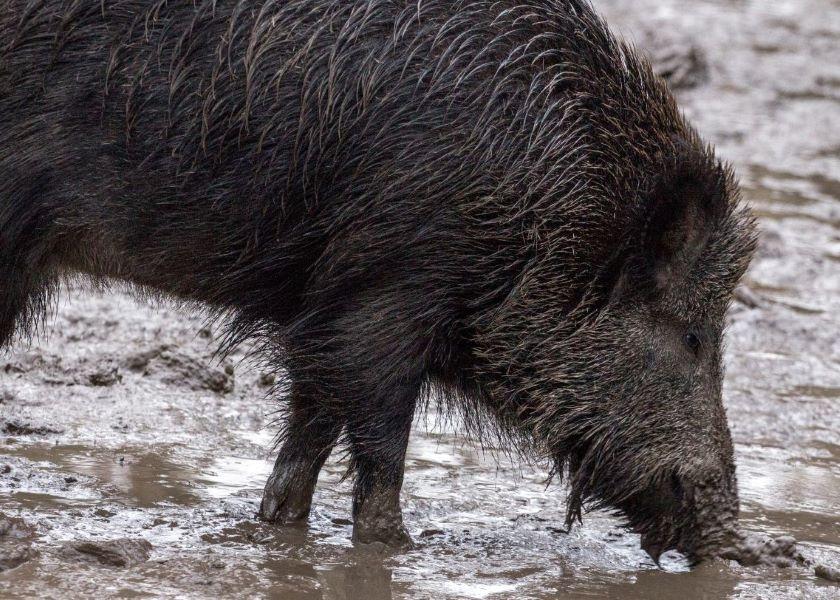Wild Boar Carcass Composting Can Reduce Spread of African Swine Fever

African swine fever (ASF) isn't going away in the Eurasian wild boar population. Experts say the infection pressure resulting from infected carcasses in the environment can be a major contributor to disease persistence and spread.
A recent study published in a Pathogens special issue titled, “An Update on African Swine Fever,” looked at composting as a method for safe and efficient carcass disposal under different circumstances. In the study, a team of researchers from Lithuania, Germany, Hungary and the U.S., investigated open-air composting of carcasses under winter conditions in Lithuania.
The study demonstrates that the ASF virus is inactivated in both entire wild boar carcasses and pieces thereof in a time- and temperature-dependent manner.
In the study, when composting piles reached up to 59.0 °C, the ASF virus was inactivated. However, the ASF virus genome was still present until the end of the 112-day sampling period. Researchers believe heat and other factors, such as changes in pH or the absence of a living host, could be responsible for deactivating the virus during the composting process.
“While further studies are needed to explore potential risk factors (and their mitigation), such as destruction of composting piles by scavengers or harsh weather conditions, composting seems to present a valid method to inactivate the ASF virus in wild boar carcasses where rendering or other disposal methods are not feasible,” the authors wrote. “In summary, composting provides a new tool in our toolbox of ASF control in wild boar and can be considered for carcass disposal.”
Because European Union legislation does not provide specific rules for dealing with the safe disposal of carcasses found in affected regions, the authors point out that this leaves the competent authority room for the implementation of these measures.
“In the FAO Animal Production and Health Manual on African swine fever in wild boar, different strategies are mentioned, i.e., incineration, rendering, and on-the-spot burial or burning. While rendering or incineration are the most effective and reliable ways to dispose of carcasses, safe transportation to the rendering sites can be hampered by inaccessible habitat, and many countries lack suitable rendering plants,” the authors point out in the conclusion.
Because of this, disposal methods that can be carried out on the spot, or at least locally, become important options. These options include burial (single pit, on-site trench, or mass burial) and burning, and both are mentioned in the respective manual. However, this research adds composting as a valid option.
“Burning can cause environmental pollution and might not be feasible in the dry season with a high risk of forest fires. Burial, on the other hand, is difficult to perform in the winter season when digging is hampered by the frozen ground. Composting demonstrated to be effective in wintertime can be an important addition to the toolbox of carcass disposal, especially for countries that lack rendering capacity,” the article said.
It's important to note under field conditions, there is a risk of pile destruction by scavengers and predators. The researchers said it is advisable to fence all potential composting areas and to monitor them with game cameras when composting as carcass disposal within disease control interventions.
“Biosecurity measures must also be strictly followed during the composting process, including the use of appropriate prevention methods during hunting and carcass transportation,” the authors explain.
Safe disposal of contaminated carcasses is crucial in preventing the spread of ASF. Improper disposal allows the virus to spread through the environment and other animals more easily. Researchers recommend following USDA’s guidelines, including temperature recommendations, when composting depopulated carcasses.
Learn More:
5 Reminders for Livestock Mortality Composting
Wild Pig Explosion Starts in Belly of the Beast
A Mortality Composting How-To
Mortality Composting: Making Happy Microbes







